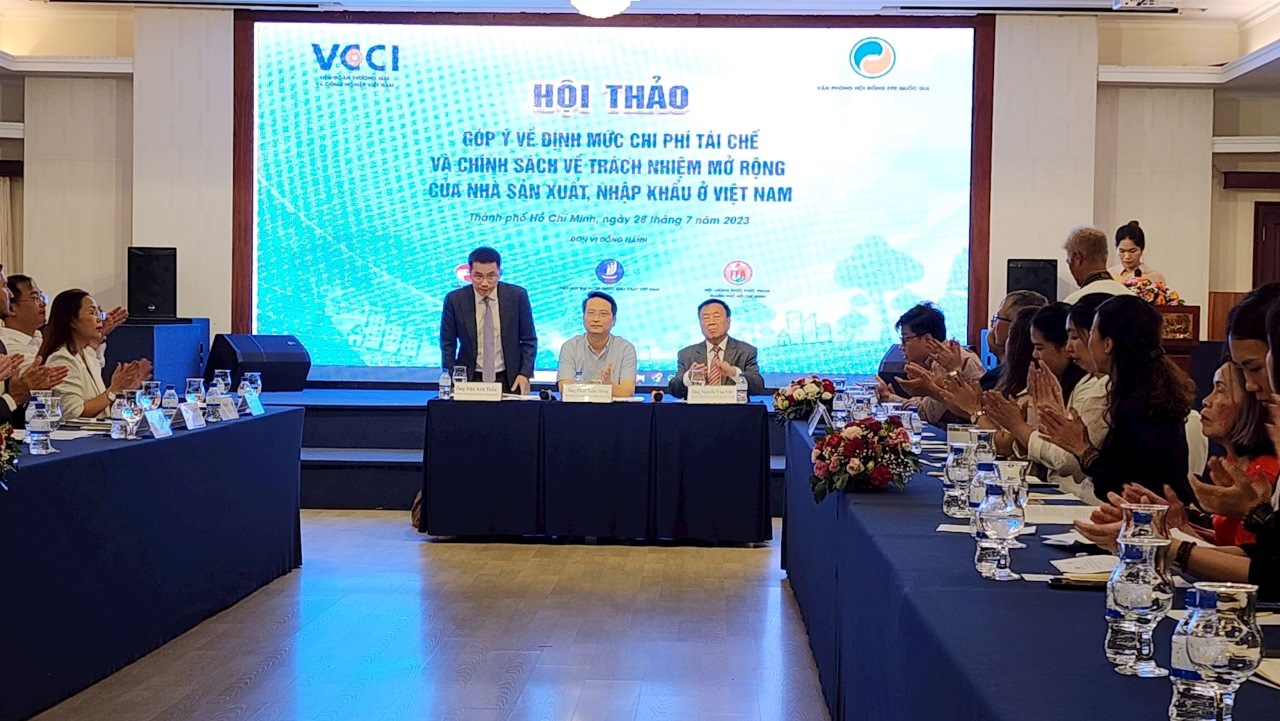HCMC – Businesses in Vietnam may face additional costs exceeding VND6 trillion for recycling paper, plastic and metal packaging, raising concerns among many companies.
A seminar was held yesterday (July 28) to gather feedback on the prime minister’s draft decision, which aims to establish reasonable and valid recycling cost limits for a unit of product or packaging weight. The organizers were the Vietnam Chamber of Commerce and Industry (VCCI), the National EPR Council Office, the Vietnam Beer-Alcohol-Beverage Association (VBA), the Vietnam Plastics Association (VPA), and the Food and the Foodstuff Association of HCMC (FFA).
The decision, scheduled to take effect on January 1, 2024, aims to determine the level of involvement and financial support that manufacturers and importers must provide to strengthen and expand recycling efforts.
While the proposed recycling cost framework has received support from many businesses, concerns are mounting over its feasibility.
The recycling cost limits for a unit of product or packaging weight in the current draft still remain higher than the average rates of recycling in 14 developed Western countries, despite some changes compared to the one drafted on April 27, according to Dau Anh Tuan, deputy general secretary of VCCI.
The recycling cost for aluminum is 1.26 times higher than European average, and for glass, it is a staggering 2.12 times higher.
The estimated annual recycling fee for paper, plastic, and metal packaging alone amounts to VND6,127 billion, excluding other types of packaging and waste products. Such a substantial cost burden is expected to make life harder for businesses, potentially leading to higher product prices and exacerbating current economic difficulties.
Consumers’ livelihoods may also be affected, with the proposed recycling cost for rigid PET plastic bottles leading to an expected price increase of VND61 for a 500ml water bottle, equivalent to a 1.62% rise. Other packaging types, including drums, containers, and transport vehicles, will also be subject to recycling fees, potentially doubling the price hike.
The high recycling cost proposal is mainly attributed to the failure to accurately determine the value of reclaimed materials following circular economy principles. The associations involved called for a more scientific and practical approach to calculating recycling fees.
They proposed a change in the contribution payment system, transitioning from advance payments at the beginning of 2024 to payments based on actual quantities at the end of 2024, to alleviate the financial burden on businesses.
They also suggested implementing a hybrid responsibility approach for each type of packaging, combining self-recycling efforts with financial contributions for any remaining gaps. They recommended not imposing penalties for non-compliance with international practices during the 2024-2025 period.









